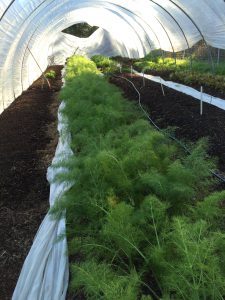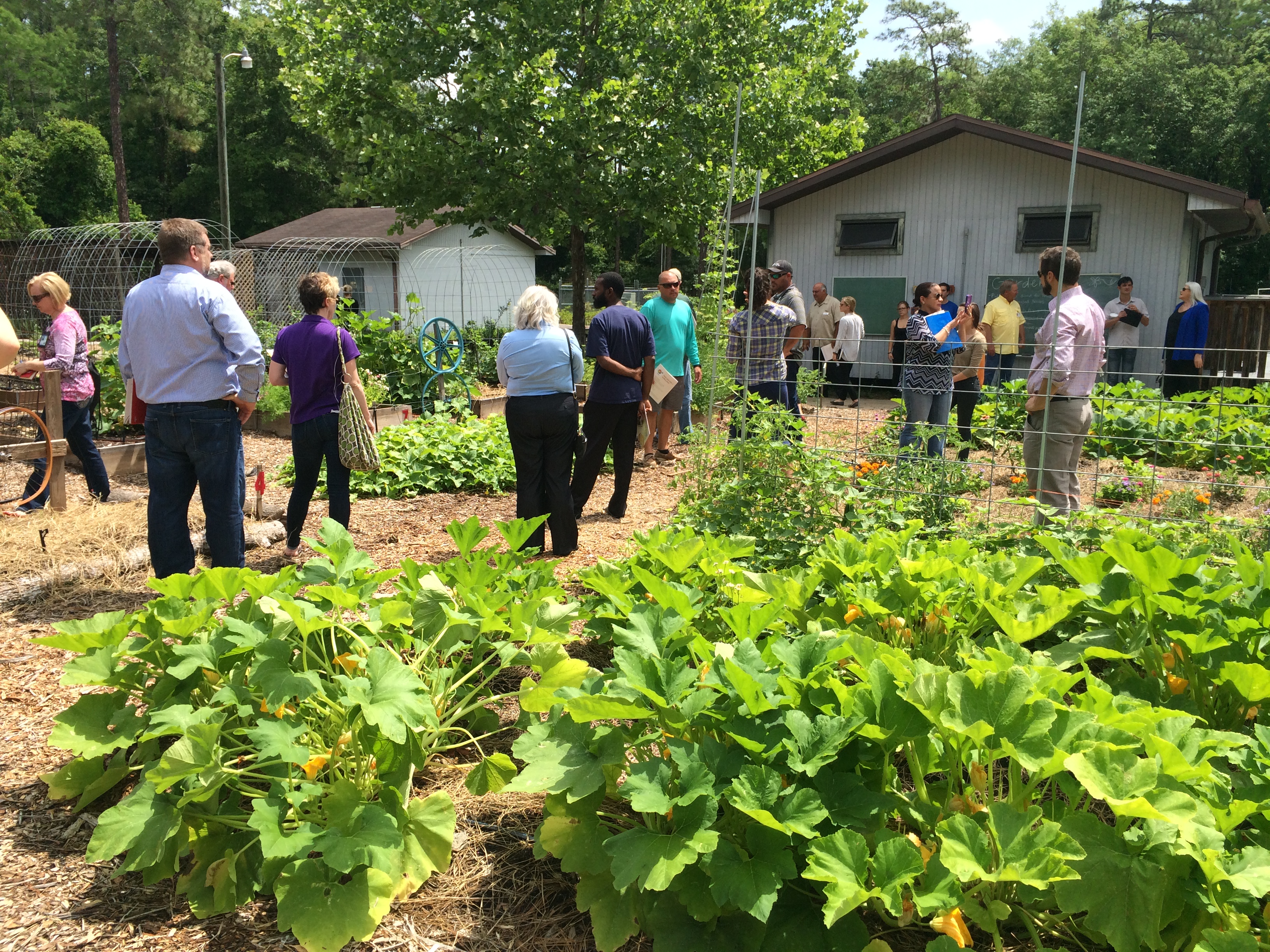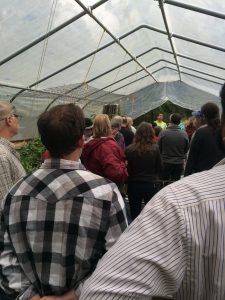One excellent way to increase farm sales is to host a farm tour. In 2013 the Florida Legislature passed Senate Bill 1106, protecting farmers and ranchers from liability as long as activities are directly related to agriculture. This has opened up many opportunities for Florida farmers and has given citizens access to local farms where they can explore and meet the farmers where they work every day. Farm tours give the public the opportunity to not only see where their products originated, but also how they were produced and what farming techniques are actually used. This can help strengthen the relationships you have with customers, help you reach new customers, and make your farm stand out and be remembered.

Discuss all aspects or your farming practices, including cold protection, irrigation, and soil management. Photo by Molly Jameson.
One important aspect of planning a farm tour involves marketing. How will you let potential visitors know about your tour? If an organization, farm, or other entity organizes a farm tour event in your area, definitely take advantage of the opportunity. Often all you will need to do is complete an application providing a description of your farm and its amenities, and organizers will market the farm tour for you. If you live in an area without an established regional farm tour event, consider organizing one yourself or ask your local extension office for guidance and support. When advertising for your tour, include information on what visitors should bring, such as hats, sunscreen, water, and closed-toe shoes, as well as what not to bring, such as pets.
Once you have decided to host a farm tour, you then need to think about what you will discuss with your visitors. Remember that many people touring your farm may know very little about farming and will be interested in every aspect of your practices. Consider discussing your methods of fertilization, soil management, crop varieties, irrigation techniques, planting and harvesting schedule, equipment and tools used, and insect and disease management. Discuss with visitors what makes your farm unique, your experience as a farmer, where you sell your products, how you get your products to market, and your involvement within the community.
On the tour, include as many areas of your farm as possible, including fields, pastures, barns, packing sheds, greenhouses – and even beehives and compost piles. Set up a farm stand to give customers the chance to buy your products on site. If possible, include hands-on activities and demonstrations as part of your farm tour, such as sample tastings, weed and pest identification, or a harvesting demonstration.
Remember to use signs to direct visitors to parking, restrooms, where the farm tour starts, and other important information. You may want to consider offering light refreshments and water for your visitors. Also give your visitors clear safety instructions before entering an area, and post a sign about agritourism liabilities, as detailed in Florida Senate Bill 1106. You can purchase these signs from the Florida Agritourism Association website.
When concluding a farm tour, make visitors aware of your website and encourage them to follow you on social media. It is also beneficial to ask your participants for feedback about what they liked and didn’t like about the tour, so you can make improvements for future tours. Finally, take the time to reflect on the success, and think about what you could change to make your next farm tour event even better!
For additional information on this topic, utilize the following UF/IFAS Publication links:
Planning for a Farm Tour: Keeping the Conversation Fresh
Expanding Florida’s Farming Business to Incorporate Tourism
Agritainment: A Viable Option for Florida Producers
- Choosing the Right Sales Model for Your Small Farm - July 31, 2025
- Specialty Peppers for Every Heat Level - January 31, 2025
- Understanding Short-Day vs. Long-Day Onions - July 26, 2024


